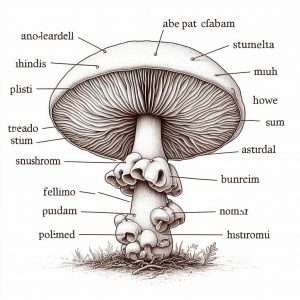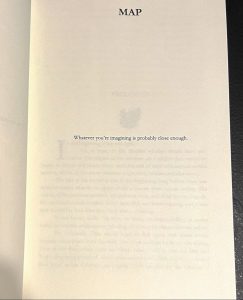Plus inside the Met’s book conservation lab, lots of AI news, and another rejection is balanced out by starting my Script in Eight Weeks course.
Hi there,
Suw’s News: Another rejection and a course started
The rejection emails from Discoveries 2024 arrived in inboxes, including mine, late last week. Whilst rejection is never a surprise, and no longer a disappointment, it is an irritation. I am rather fed up of the ‘competititionification’ of writing, not least because although a lot of competitions are free, many are paid and the fees soon mount up. And you get basically nothing from it – even the competitions that promise feedback haven’t provided me with anything actionable.
Last year, I set myself the goal of 100 rejections, but in the end I submitted fewer than a dozen times – though I did have a 100% rejection rate, which is something to be proud of, I suppose. This year, my goal isn’t to submit a lot, it’s to write and produce my Fieldwork sitcom podcast. The only submissions I’ll be making will be to open calls or competitions specifically for comedy. Everything else is on the back burner.
On the subject of Fieldwork, Dave Cohen’s Build A Script sitcom course has started, and my weeks of pre-writing are paying off. I finished up Friday’s homework in an hour and a half, with an extra twenty minutes of polishing this morning, and it all flowed fairly easily. I’ve managed to work for an average of 5 hours 45 minutes per week on Fieldwork this year, so if I keep that up and continue my pre-writing exercises as I go along I think this will all come together nicely.
Opportunity: Write Start Competition
Whilst I’m eschewing competitions this year, that doesn’t mean you should! Write Start is an American competition for novelists costing $35 and with a submission deadline of 31 May. All you need to do is submit 20 pages from a completed manuscript and you might win a meeting with an agent.
Read this: How a font tweak saves paper
I absolutely loved this story about how designers at HarperCollins have spent the last three years experimenting with fonts, layout and ink in order to reduce book page counts whilst maintaining readability. “[S]o far, these subtle, imperceptible tweaks have saved 245.6 million pages, equivalent to 5,618 trees.” And looking at the sample, the eco-friendly font is easier to read for me than their standard, so that’s a win all round!
Stop, look, listen: Origin Story
Origin Story, from Ian Dunt and Dorian Lynskey, is one of my favourite podcasts that’s not about writing but is essential listening for writers. If you want to quick explainers for not just political concepts but also broader cultural phenomena, then you can’t do better.
I recently listened to and loved their episodes on the origins of zombies and their role in fiction and the secular side of the apocalypse, in which I learnt that Mary Shelley did not just write the first science fiction book with Frankenstein, but one of the first pieces of apocalypse fiction with The Last Man.
Read this, two: Inside the book conservation lab at the Metropolitan Museum of Art
Another delightful read, this one from the New York Times who sends Molly Young to take a peek behind the scenes in the Met’s book conservation lab (gift links but paywall possible).
“For people who love books, entering the lab is like getting hit with Cupid’s arrow,” [Mindell] Dubansky said. “People walk through this door with a dazed expression on their face, wanting to dedicate their entire lives to making sure the books are OK.”
It me. It definitely me.
Read these: More ‘AI’ news, none of it good
Vox does a deep dive into Amazon’s problem with shite AI-generated books and the problems caused by human grifters out to scam people who are desperate to be authors:
Keyword scrapers that exist for the sole purpose of finding such search terms delivered the phrase “Kara Swisher book” to the so-called biographer, who used a combination of AI and crimes-against-humanity-level cheap ghostwriters to generate a series of books they could plausibly title and sell using her name.
Astrolabe covers the stooshie caused by SFF publisher Angry Robot deciding to use AI to sort submissions during their open window.
Controversy arose, however, when the fine print for the open submission period revealed Angry Robot would be using an AI-driven application called Storywise to help sort submissions and deliver them to appropriate editorial staff. Despite recognizing the potential blowback resulting from the use of an AI tool, and preemptively developing an extensive FAQ explaining its use, Angry Robot met with a lot of Angry Writers. Five hours later they announced they would no longer be using Storywise and would revert to a more traditional email inbox-process.
Not everyone was convinced by Angry Robot’s climbdown, and author Lili Saintcrow pointed out their inconsistencies in a BlueSky thread.
The Bookseller reports that HarperCollins and ElevenLabsAI are using AI voices to create audiobooks for foreign titles, which has voice artists worried. Although HarperCollins are starting with niche titles that wouldn’t otherwise warrant an audiobook, the obvious concern is that once AI has been accepted by the listener, it will be used to replace voice actors. Except, obviously, the celebrities who can pull an audience of their own.
This is an opportunity to expand the library of audiobooks available, and that’s great from accessibility and market growth points of view, but I do understand voice actors’ worries. Big corporations don’t have a very good track record of drawing boundaries that protect us humans.
 Public Citizen raises concerns about dangerous AI-generated apps and books on foraging for mushrooms which misidentify toxic, even deadly, mushrooms. Mushrooms are notoriously difficult to identify accurately and it’s very easy to make a mistake, as author Nicholas Evans did in 2008 when he and some family went foraging and accidentally picked, cooked and ate some deadly webcap mushrooms. Evans and three other family members nearly died, and three of them lost kidneys.
Public Citizen raises concerns about dangerous AI-generated apps and books on foraging for mushrooms which misidentify toxic, even deadly, mushrooms. Mushrooms are notoriously difficult to identify accurately and it’s very easy to make a mistake, as author Nicholas Evans did in 2008 when he and some family went foraging and accidentally picked, cooked and ate some deadly webcap mushrooms. Evans and three other family members nearly died, and three of them lost kidneys.
Mushroom identification requires real expertise and shouldn’t be left to AI. There’s a reason that we don’t eat mushrooms called things like Eastern Destroying Angel, Death Cap, Poison Pie or The Sickener, (although lots of mushrooms with pretty names are also toxic).
Tweet of the fortnight: Fantasy maps
The best map ever published at the front of a fantasy book has been located by Twitter user @Thinkingabtbooks in the opening pages of Kyle James’ Hierophantasy.
Obligatory cat picture
The only way to win an argument with a cat is not to argue. I’d suggest a nice game of chess, but Grabbity would only knock the pieces over and sit on the board.
That’s it for now! See you next time!
Suw
{ Comments on this entry are closed }






